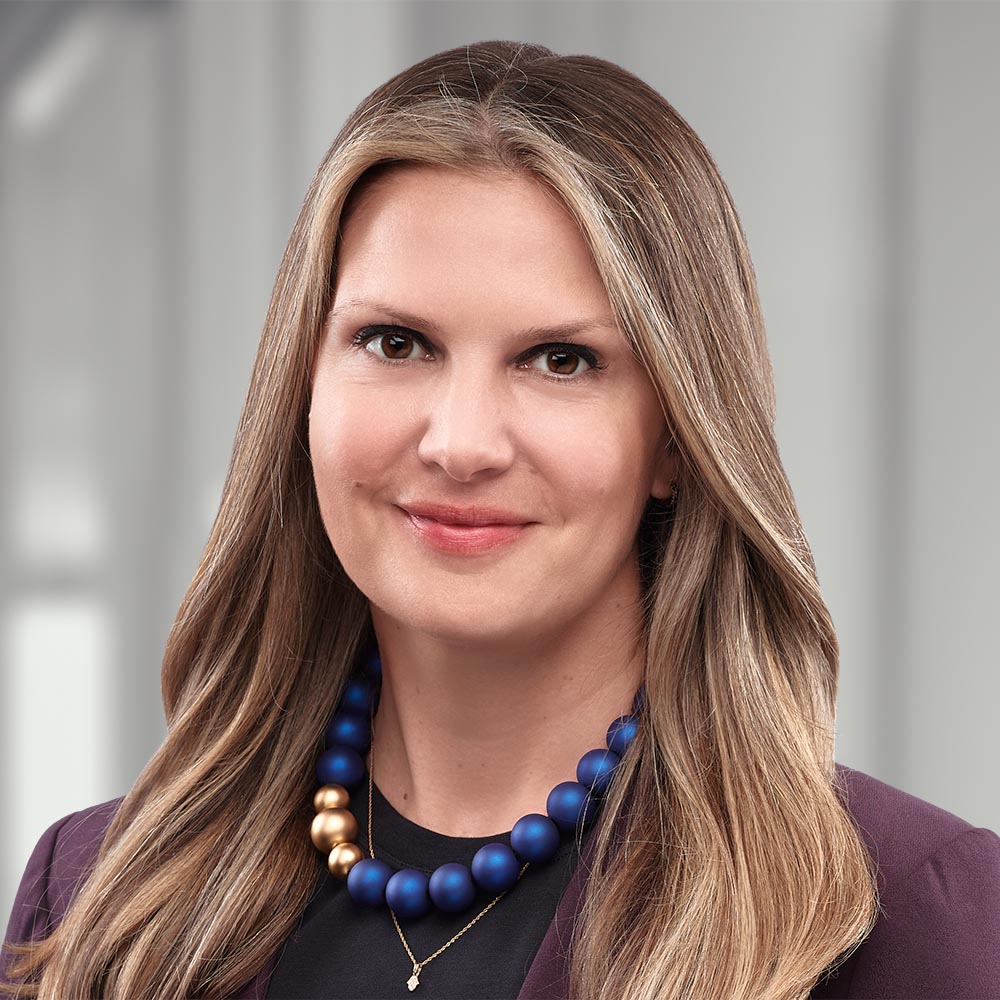Speakers
In the first video of our IPO essentials series, Kevin Morris and Leah Frank of our Capital Markets group highlight what business leaders should be thinking about in leading up to an IPO, including:
- structuring considerations;
- due diligence;
- financial statements; and
- management and resources.
Watch the next episode of our IPO series on U.S.-Canadian cross-border IPOs.
Click here to visit the main IPO series page.
Leah Frank (00:11): Hi, everyone. Thanks for joining us. We're really looking forward to discussing with you today some key long-lead items that you should be thinking about if you're considering an IPO. I'm Leah Frank. I'm a Partner in our Corporate and Capital Markets Group at Torys.
Kevin Morris (00:25): And I'm Kevin Morris, another Partner in the Capital Markets Group at Torys.
Leah Frank (00:29): So we're going to be talking about four key items today that you should be thinking about upfront. The first is structuring considerations. The second is due diligence. The third is financial statements. And the fourth is management and resources. So in terms of structuring, Kevin—so this will be unique to every company—but what's something that all companies should be thinking about upfront?
Kevin Morris (00:53): Well, I'll start off by talking about the working group for the IPO. Generally, it's five different parties. It's the company which is represented by its management, the company's outside counsel, the company's lawyers, the underwriters—will be the link between the company and its new public investors—the underwriters' counsel, and the company's auditors. And there's also a sixth party who's involved in the IPO planning process, whose interests are part of the whole process, and that's the company's owners. Whether it's a private equity firm or the founder shareholders or another group of investors, the owner's planning is part of the structuring process as well. So at the beginning of the process, it's important that the working group considers any tax planning issues that might arise in the context of the IPO, both for the company and its relationship to its subsidiaries, or its internal capital structure. And the existing shareholders may also have tax planning interests in mind. Another point that the working group needs to consider at the very beginning is, What's the use of proceeds for this IPO? If it's a successful IPO, there'll be millions of dollars raised by public investors. Is that money going to go to the company for it to grow its business? Or is it going to existing shareholders who are going to be exiting their investment? Or it will be a mix of the two? Another question for the working group to consider at the beginning is in many cases, the public being asked to invest in a founder's vision for a new business, to grow the business, and in which case the working group may consider that it wants to ensure that the founder maintains control of the company even after the public invests. And in many cases to enable that to happen, the working group will put in place a dual-class share structure, which means that the founder will get to own shares which have greater voting rights than what the public is going to invest in. So even after the IPO is closed and the company now has public investors, the founder will have enough votes to be able to elect the board for a period going forward. So that's something else the working group needs to consider at the beginning. The key element for the working group to go forward with the IPO is preparing disclosure document, which is called a prospectus, which describes the company and its business, its growth plans, its financial position and its financial history. The working group will be very careful in preparing that document, and they'll do a lot of work to ensure that the disclosure's right and accurate through a process called due diligence. And Leah, I'm going to ask you to speak about that.
Leah Frank (03:23): Sure. So diligence is a very time-consuming process, and there's a lot of work that the company needs to do upfront in order to get ready. We often say to budget about 8 to 16 weeks just to prepare for an IPO. So in terms of diligence, it serves a couple key functions, as Kevin mentioned. The first is that it really ensures the underwriters can understand the business of the company in order to be able to tell its story in the prospectus document and to market the company's shares. The second is that it ensures the working group can make sure all of the material information about the company is included in the prospectus and that nothing material has been omitted. That point is particularly important because the prospectus is a liability document. This means that certain parties including the company, the underwriters, the company's board of directors, among others, bear liability to potential purchasers in the IPO if there's a misrepresentation in the prospectus, which basically means something material is not included or something is materially wrong in the document. And so diligence helps the working group make sure that they're confident that the prospectus is accurate and there's no misrepresentation. In terms of process, there's a lot to do to get ready for diligence. A couple of key questions at the outset: Do have your corporate records up to date? Are they well-organized? What about your material contracts? Are they ready? Are they well organized? What about third party debt, summaries of litigation, employment materials, your closing books for various acquisitions and dispositions? I guess the key point here is to have everything well-organized and available electronically so that it can be quickly put up in a data room for the underwriters and their counsel to review. In terms of the process itself, there's a few different aspects. For example, the underwriters are also going to undertake financial and operational due diligence, and the operational diligence will depend on the business of the company, but likely there will be some sense of site visits or diligence of physical assets. They'll also call your key customers and suppliers. So just be thinking about that and how that's going to fit into the overall process of the IPO. There will also be a factual circle-up exercise on the prospectus. Essentially, every statement in the prospectus needs to be backed up. So if you say you're the third largest producers of widgets in Canada, the underwriters are going to want to see evidence to back up that statement. Finally, there will be an auditor comfort process where the underwriters are looking to the auditors of your company to provide backup for the statements in the prospectus that derive from the financial statements to confirm that these numbers are correctly presented and calculated. And again, that's just another process that's time consuming and it requires management attention. So on the topic of auditors and financial statements, do you want to talk about what's required for an IPO?
Kevin Morris (06:27): Sure. And I will say at the beginning that when we talk about a timeline for the IPO, it's often that the preparation of financial statements is the key gating item—from the start, to when you get to file the prospectus to go public. The preparation of financial statements can often take the most time. There's very little room to maneuver. The statutory requirements are that the company needs to include three years of audited financial statements in the prospectus. Those financial statements need to be audited in accordance with what's called IFRS, the International Financial Reporting Standards. They need to be audited in accordance with Canadian public company standards, and there's very little room to maneuver from that requirement. Another key term that the working group needs to be aware of at the very beginning of the planning is the term "significant acquisition". Has the company made what's called a significant acquisition over the past three years, and that's a defined term under the securities legislation. If the company has made such an acquisition, then the prospectus will need to include financial statements of what they've acquired. And often, that could be a key indicating as well. So it's something that the working group needs to look into at the very beginning. In addition to the audited financial statements, the prospectus needs to include unaudited financial statements, or the most recent interim period prior to filing the prospectus. So it'll be the most recent quarter and those statements don't need to be audited. And one last note on the financial statements, the prospectus must also include what's called "management's discussion and analysis of financial results" for all of the financial periods for which there are financial statements in the prospectus. That's something that management's going to have to pay attention to and it'll take a part of their time. And Leah, actually, that leads me to ask you the question about management's involvement and what has to happen with management during this whole process.
Leah Frank (08:18): Sure. So that's a key thing to think about upfront. The make up of your management and your board of directors—is this the right group for a public company? Are they IPO-ready? The other question is, who are your named executive officers going to be or your NEOs? These are five individuals: The CEO, CFO and the three most highly compensated executive officers. They're going to be named every year in your management information circular and all details of their compensation are going to be publicly available. In terms of the board, you'll need to consider the various securities law and TSX requirements. Do your directors have the right qualifications and public company experience? You're going to need a majority of independent directors at the company. For example, the CEO is often on the board and he or she won't be independent of the company. Do you have three financially-literate directors to serve on the audit committee? Is your board sufficiently diverse or gender-diverse? Annually you're going to need to include disclosure of diversity of your board and the executive officers in your management information circular that's publicly available. And another note on the board, the TSX will be doing background checks on your proposed board of directors, so just keep that in mind. And finally, the last point I'd make is really a practical one that Kevin alluded to, which is consider whether your management team, the key members of management, have sufficient time and resources to dedicate to this IPO process in addition to their day-to-day jobs. So that's all the time we have for today! Thank you for joining us. Look forward to more videos from us on other aspects of the IPO process, both in Canada and the US. Thank you.
Kevin Morris (10:00): Thank you.
To discuss these issues, please contact the author(s).
This publication is a general discussion of certain legal and related developments and should not be relied upon as legal advice. If you require legal advice, we would be pleased to discuss the issues in this publication with you, in the context of your particular circumstances.
For permission to republish this or any other publication, contact Janelle Weed.
© 2026 by Torys LLP.
All rights reserved.
Subscribe and stay informed
Stay in the know. Get the latest commentary, updates and insights for business from Torys.
Stay in the know. Get the latest commentary, updates and insights for business from Torys.
Subscribe Now

